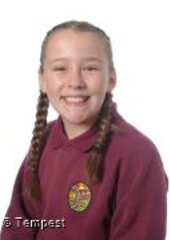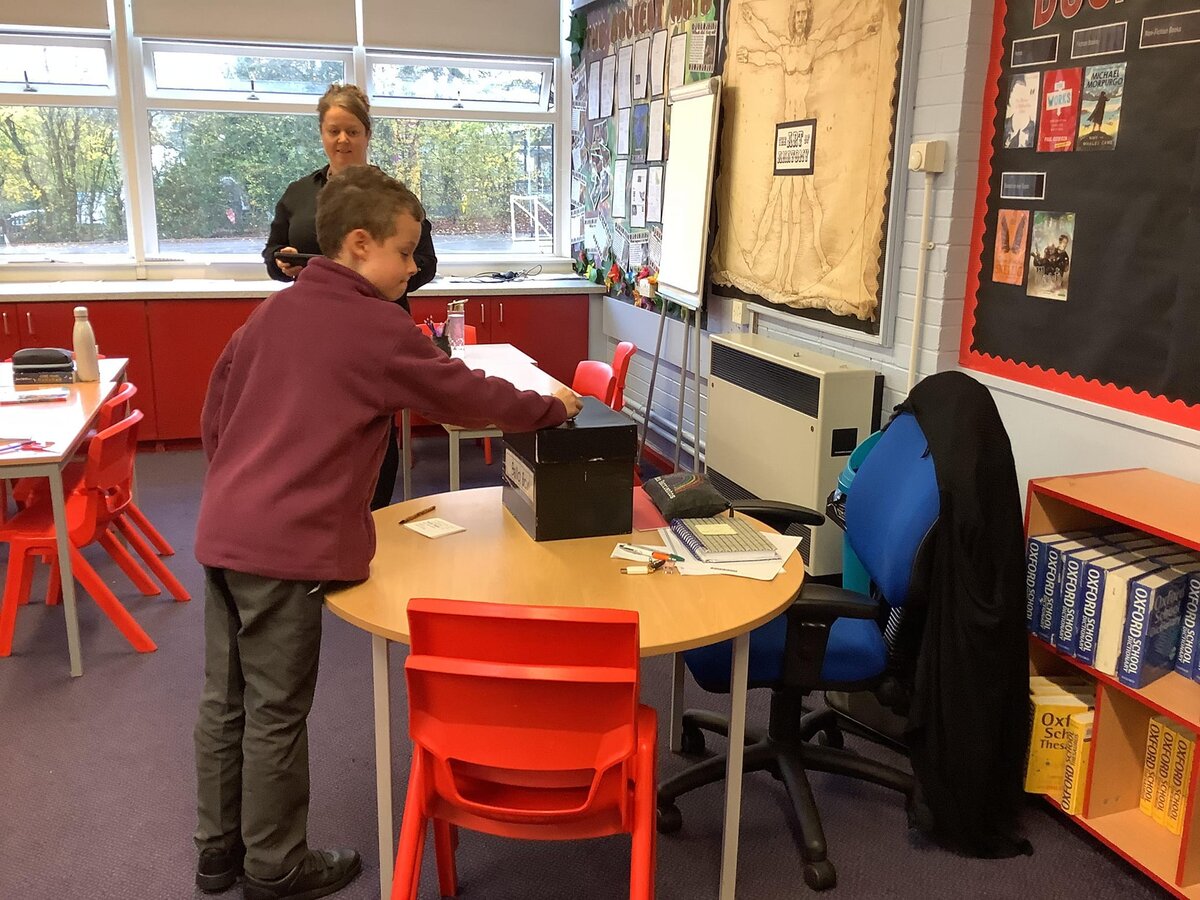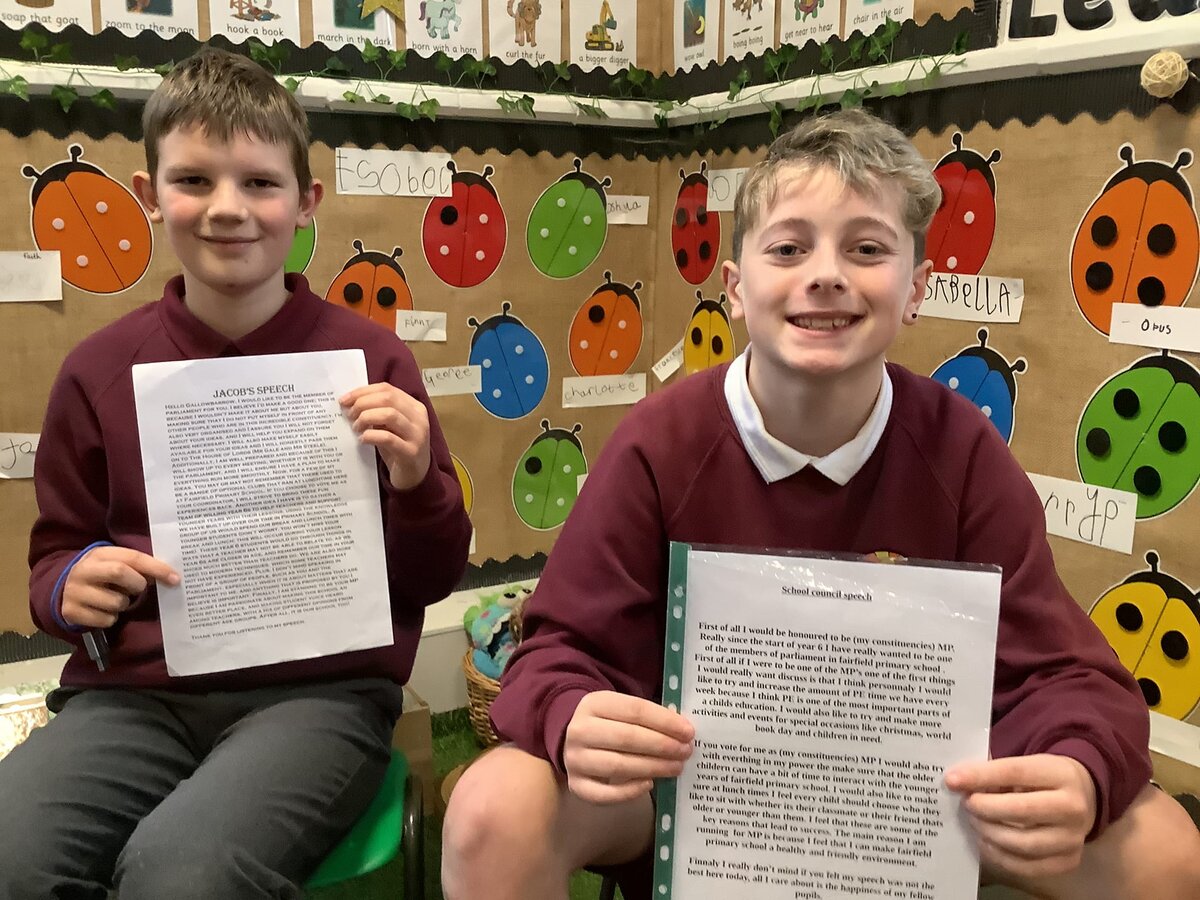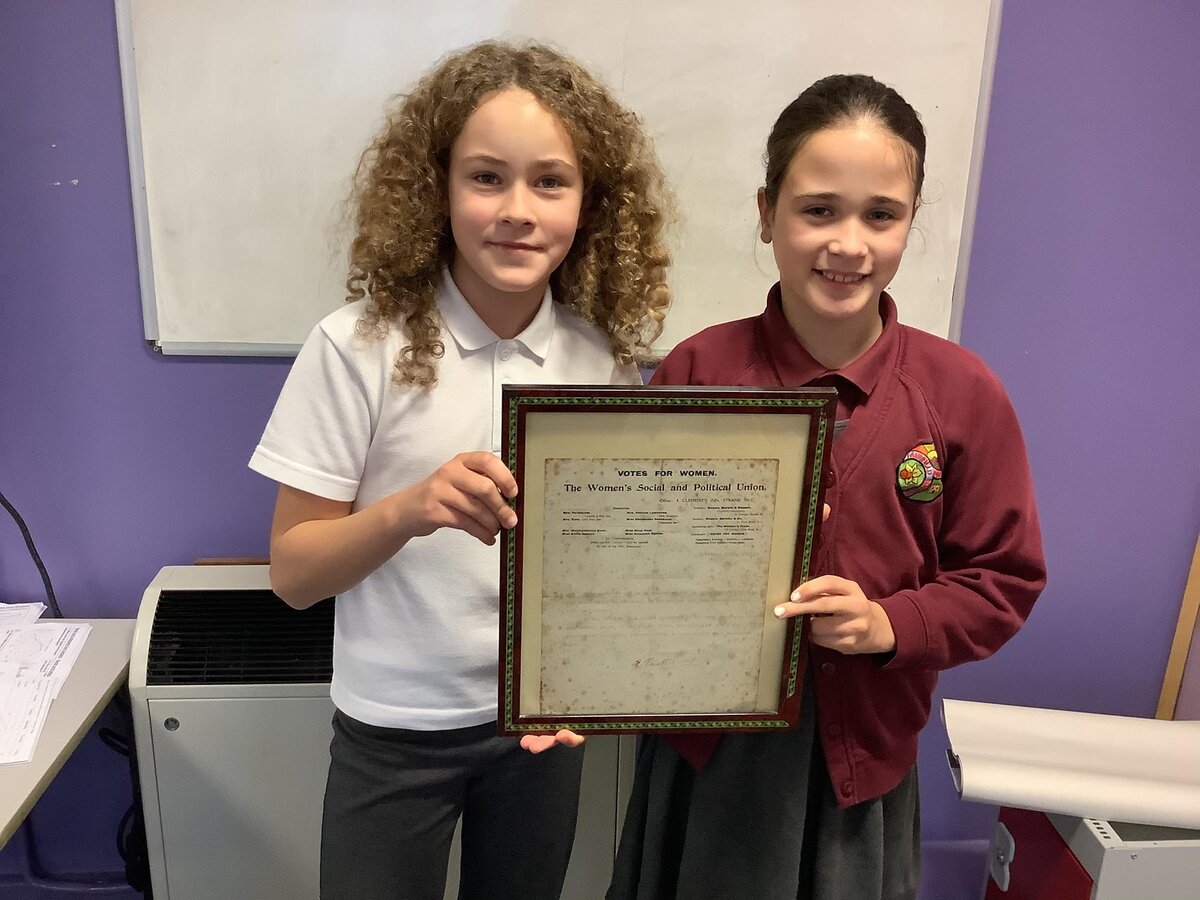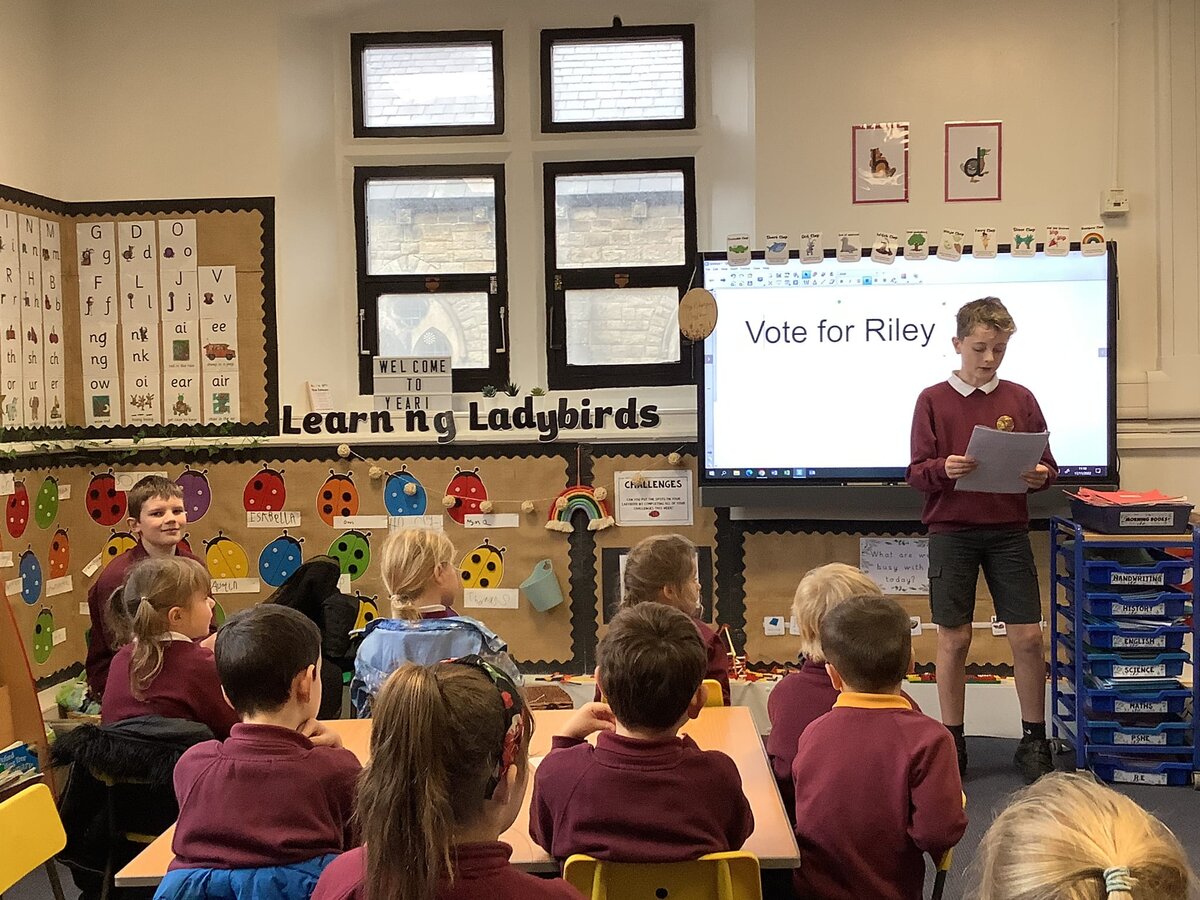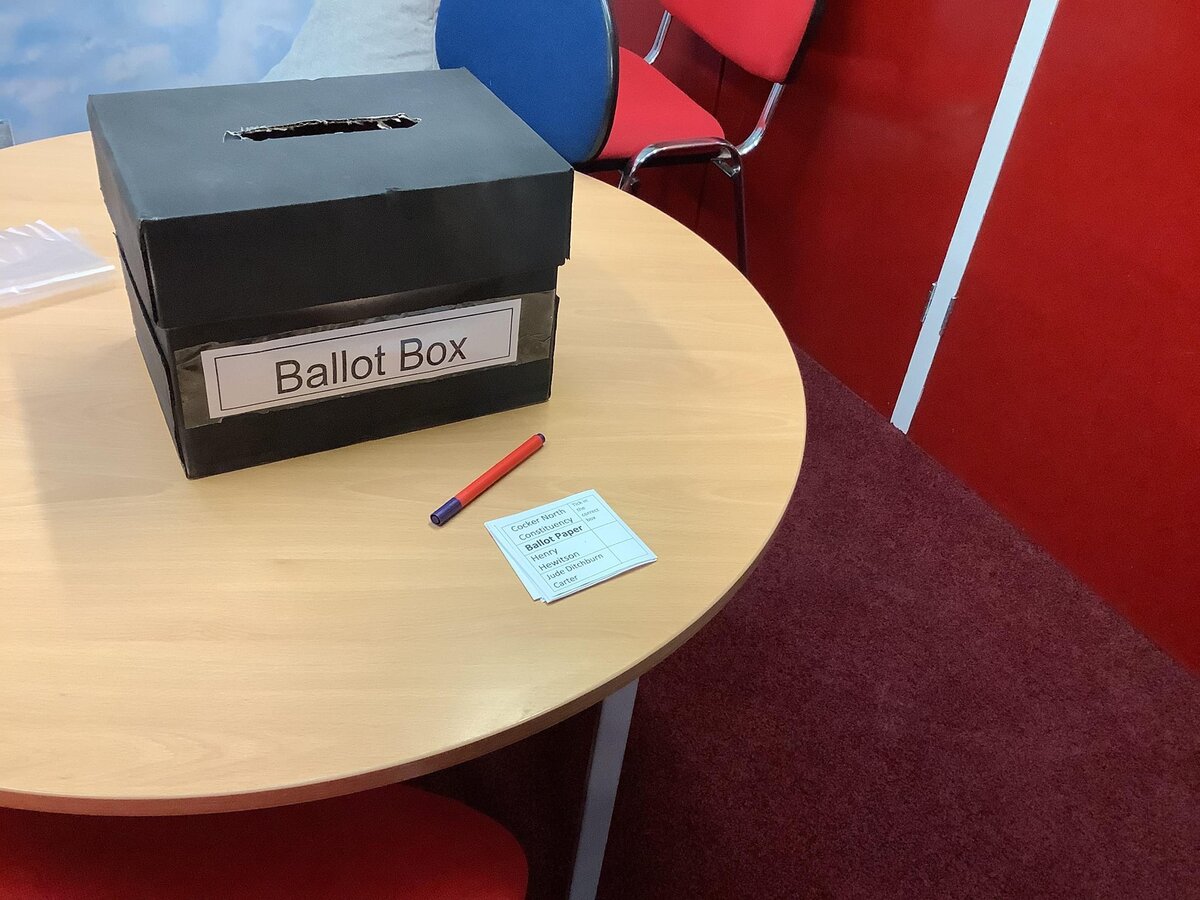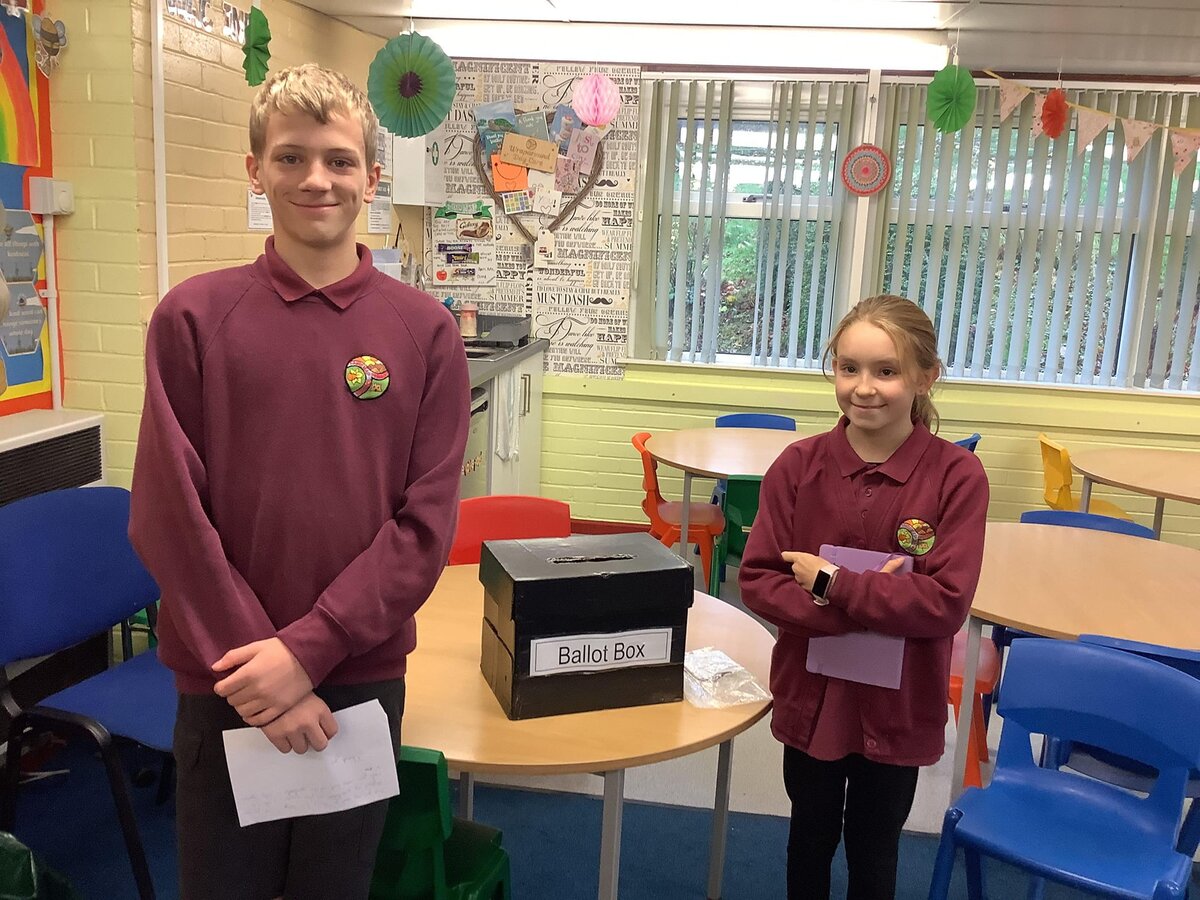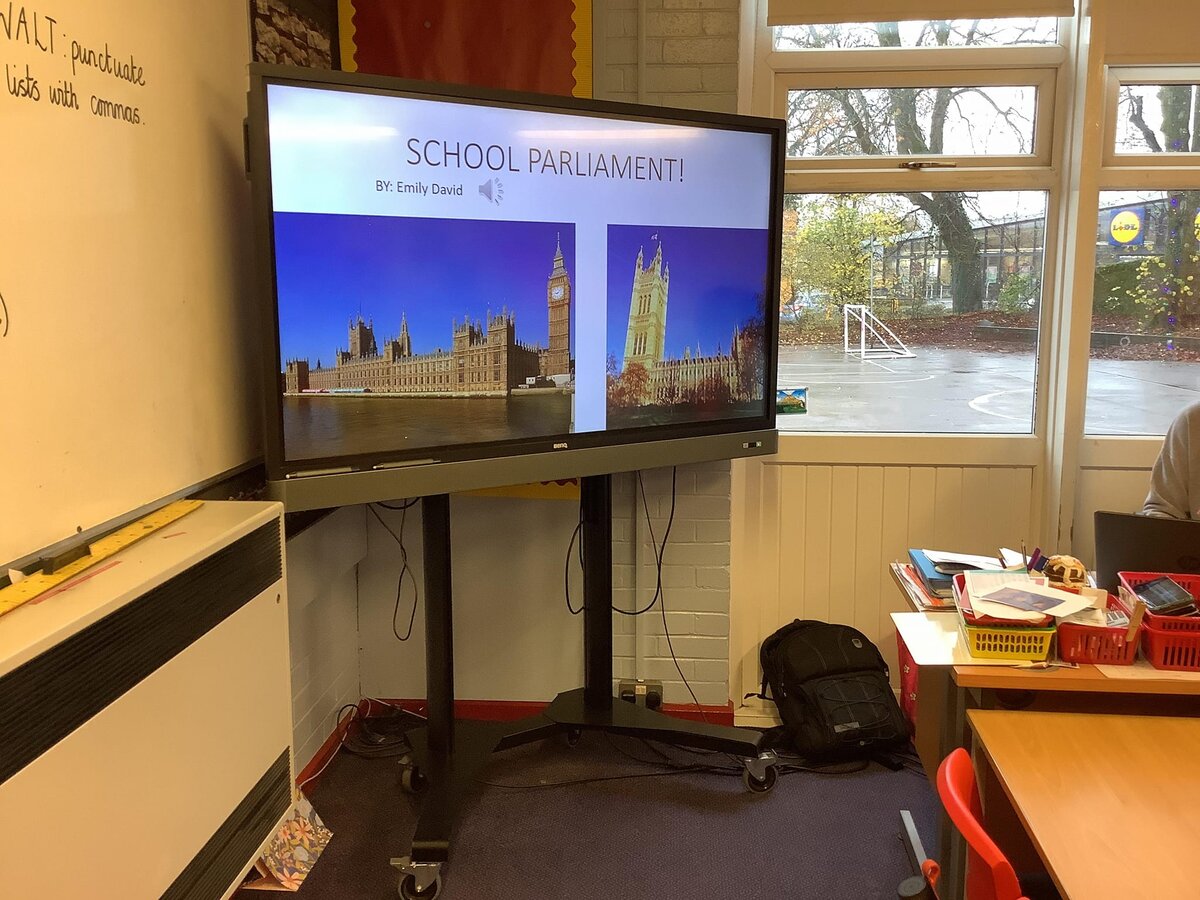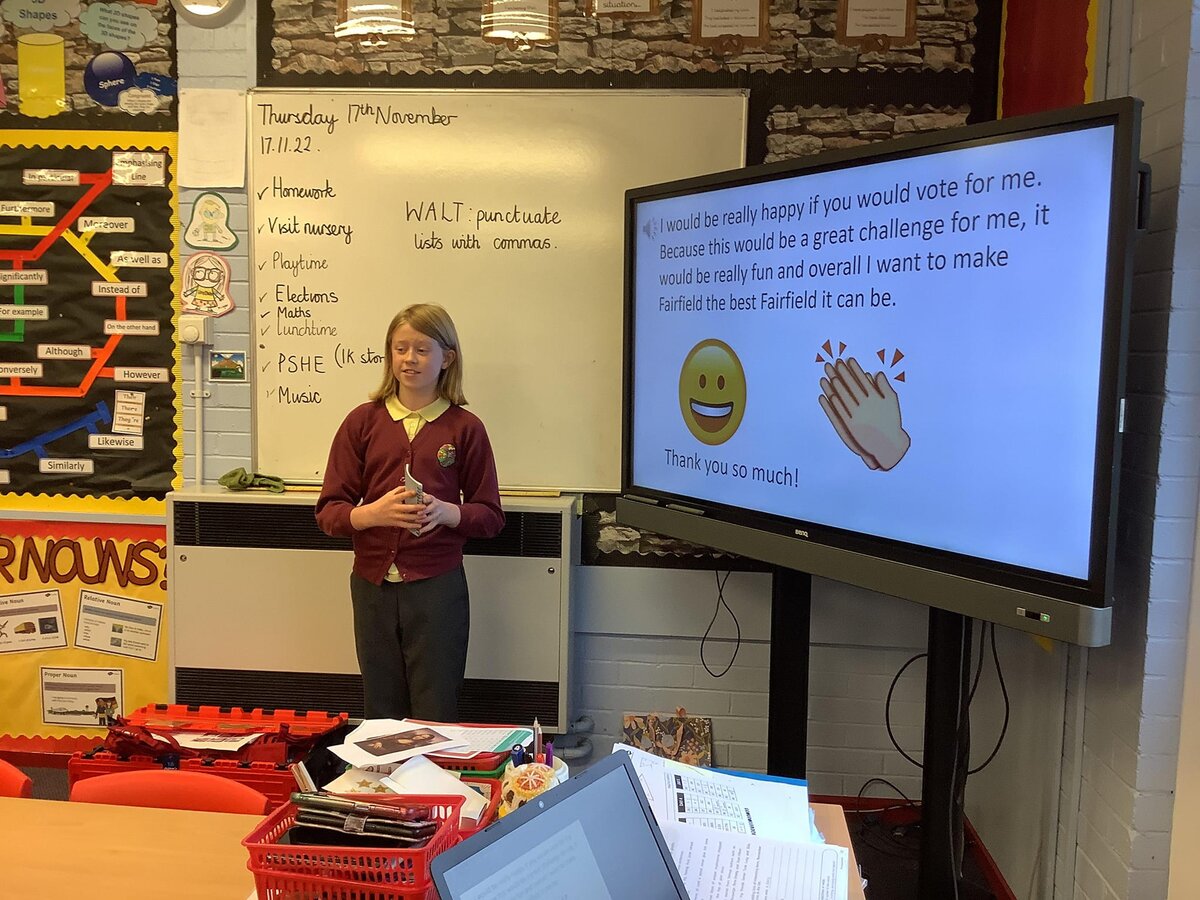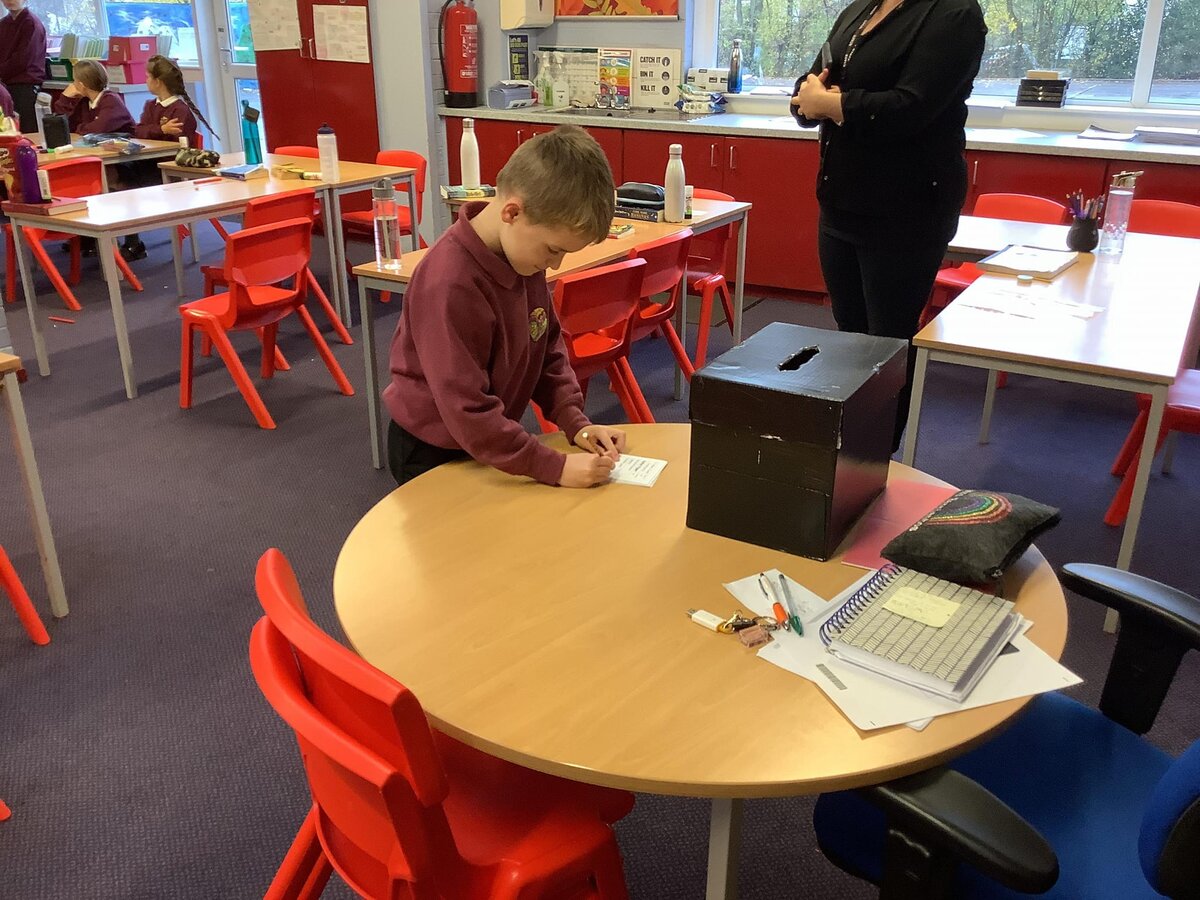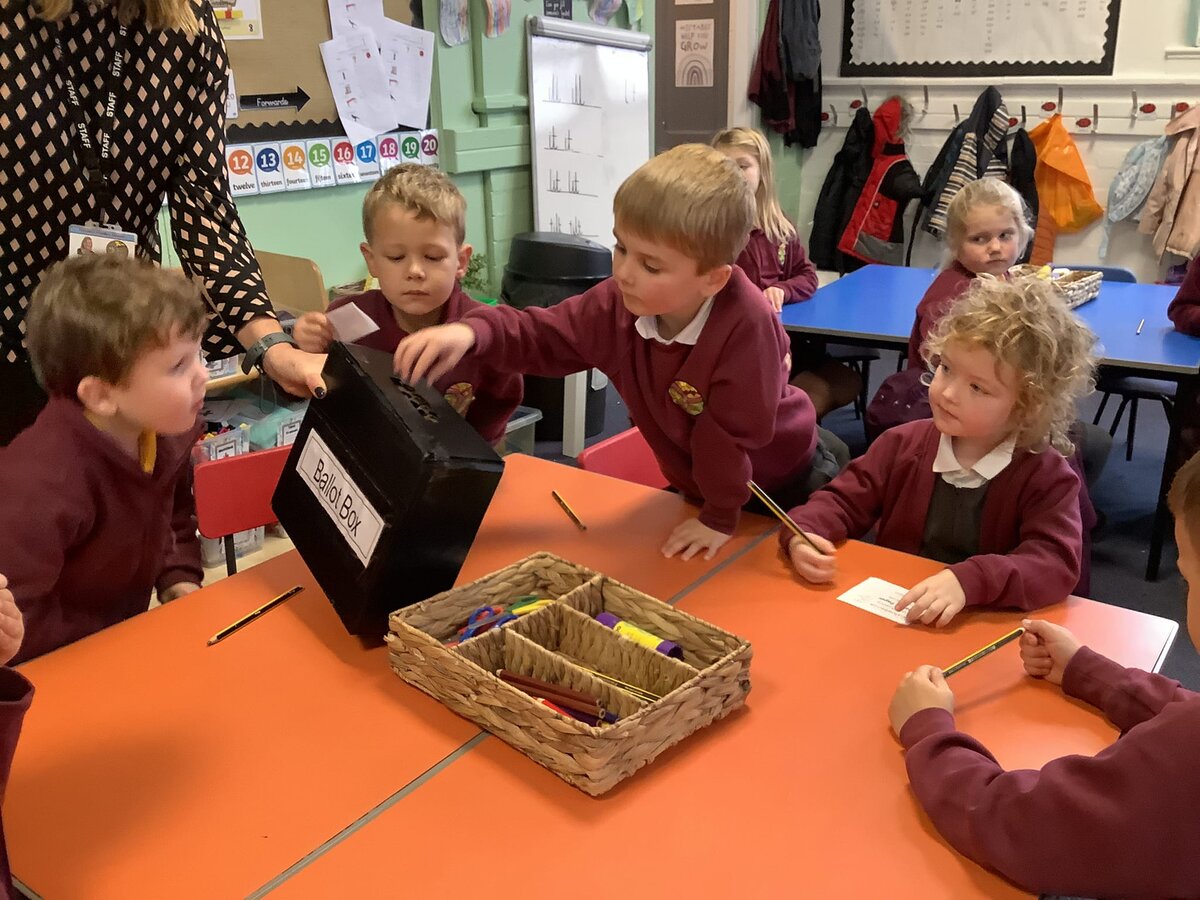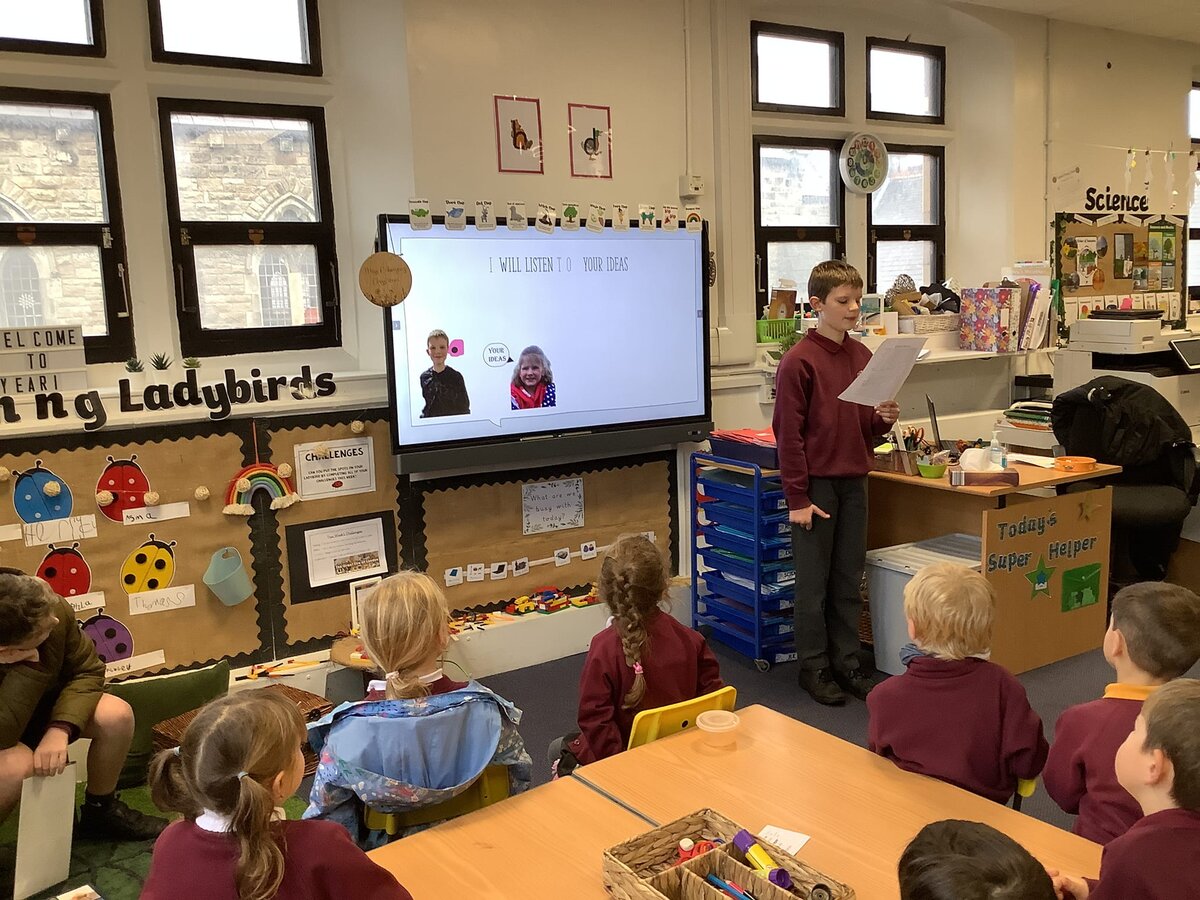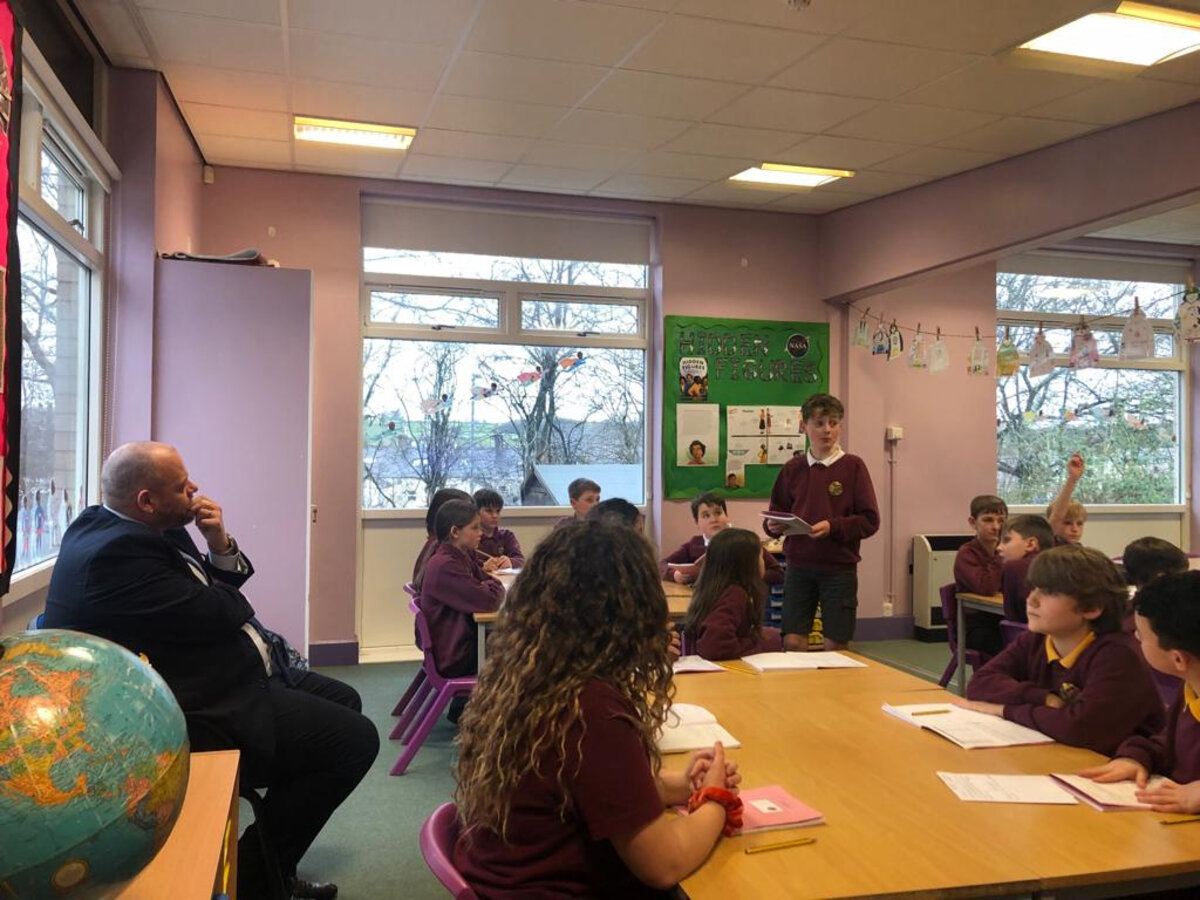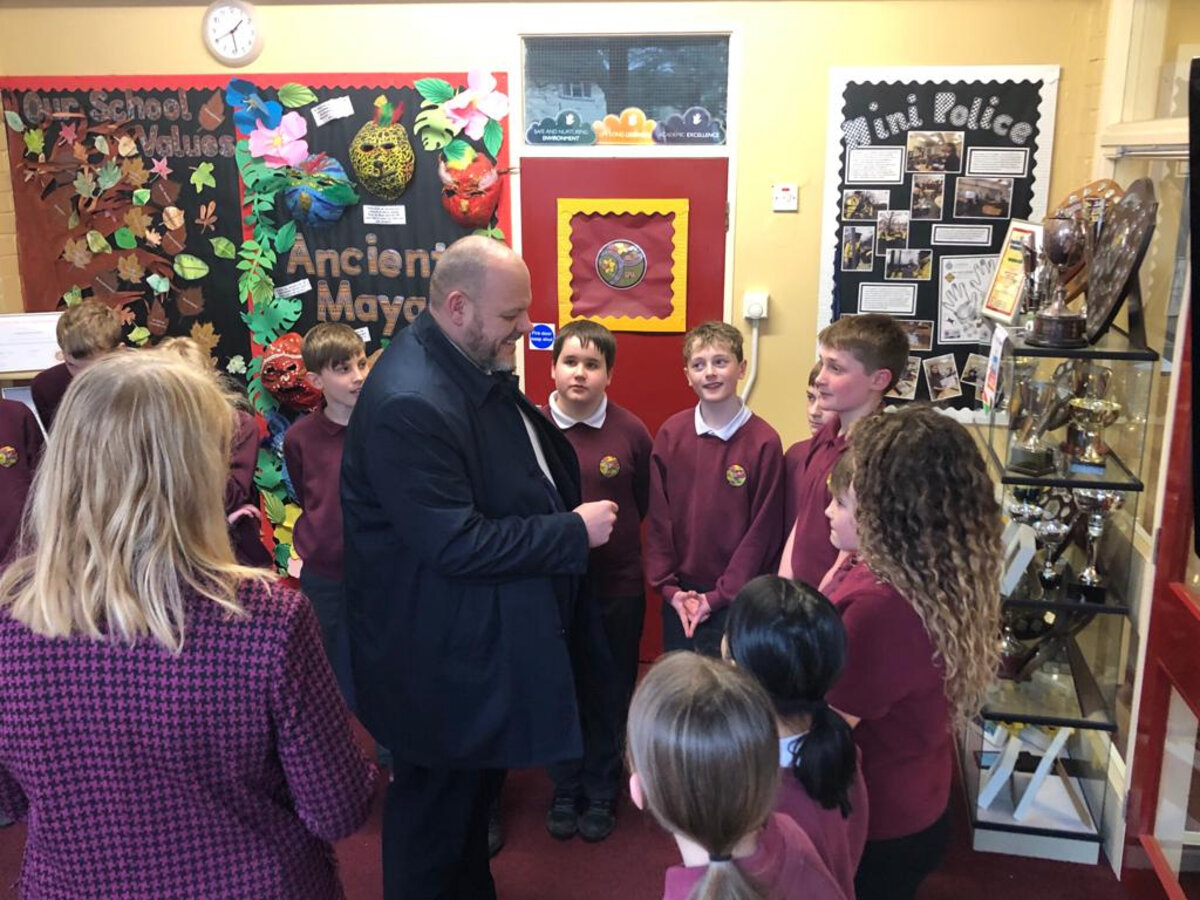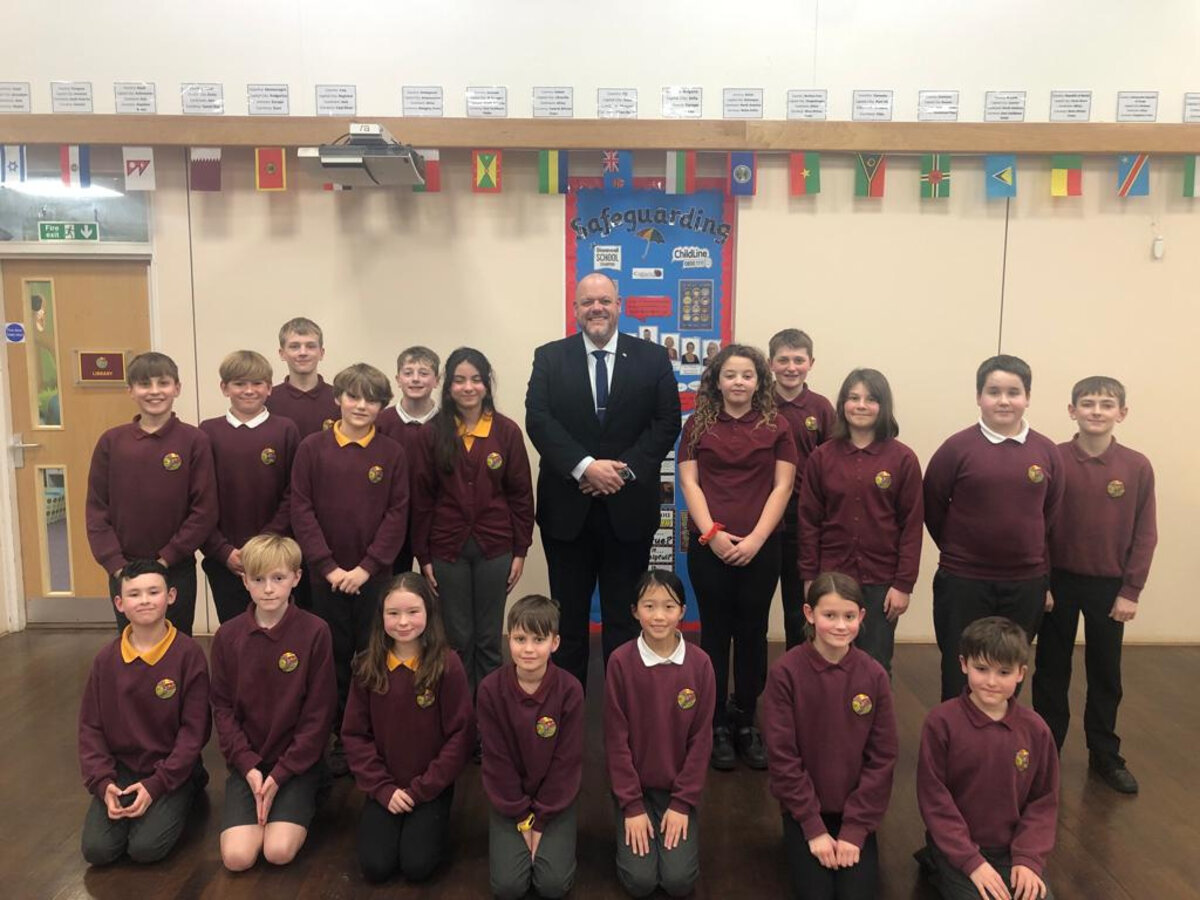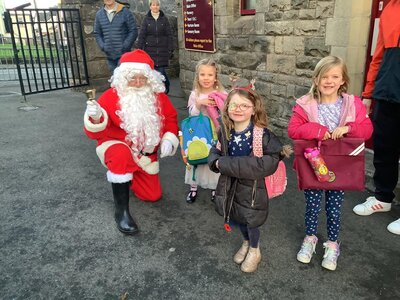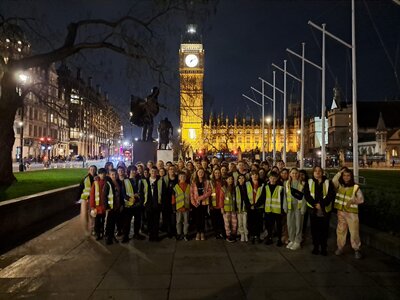Our School Parliament
At Fairfield Primary School, we understand the importance of pupil voice and give it a high profile within the school. The way we organise our school council and call it school parliament, reflects this. In addition to gathering the pupil voice, we see it as a golden opportunity to introduce children to our parliamentary system and teach them about British Values.
Children are organised into constituencies, with a member of parliament representing each constituency, rather than a representative from each class. We have eighteen constituencies in all. We are slightly constrained by having our classes split across different sites making it impossible for constituencies to be a complete mix of children from years 1 to 6. However, we have addressed this as best we can. Pupils will stay in the same constituency whilst they are in KS1 and then move into a linked branch of that constituency, when they enter KS2. Siblings will be allocated into the same constituencies or a linked branch.
We vote for a new Parliament at the start of every school year. To qualify to vote, pupils must be in at least year 1 and over 5 years old. The minimum age that pupils can stand as a member of school parliament is 10 years (and Year 6 or above). All year 6 children will be eligible to stand and will deliver their manifestos to their constituencies prior to constituents having the opportunity to vote.
All members of parliament conduct “surgeries” with their constituents in a time allocated in school. A member of staff is allocated to each constituency to oversee the smooth running of surgeries. Parliament will “sit” before and after each surgery to gather views and opinions of constituents and to discuss what issues are arising, with a speaker of the house keeping them in order. Members of Parliament are called upon to vote over various issues and their vote should reflect their constituents’ views rather than their personal ones. Voting and discussion records of parliamentary sittings are published and constituents can hold their members of parliament to account at surgeries.
We have an upper chamber to ratify any decisions made and like the House of Lords, in Britain’s Parliamentary System, it will not be democratically elected and will consist of Mr. Steele and Mr. Gale.
Occasionally, a by-election may be needed if a representative leaves the school or parliament. Every few years, we may feel the need to hold a whole school referendum and this will illustrate how usually we don’t have the right to have a say on everything but vote for the candidate we feel will most closely represent our views.
We do not have any party politics or a Prime Minister. Our model is not identical to The British Parliamentary System but we do feel that by reflecting it where we can will help us to teach children about The British System and we can teach how and why the school system is different to the country’s. Hopefully, when the wonderful children of Fairfield Primary School reach 18, they will feel well equipped on the best way to exercise their right to vote.
We recently adopted this approach and so far, have found it extremely successful and popular. Look out in the future for rising political stars being ex Fairfield pupils!
School Parliament

The Rt Hon. H.M
Constituency: Gallowbarrow
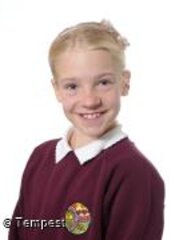
The Rt Hon. R.D
Constituency: Kirkgate

The Rt Hon. F.C
Constituency: Castlegate

The Rt Hon. E.S
Constituency: St. Helen's

The Rt Hon. G.H
Constituency: Cocker

The Rt Hon. O.O'N
Constituency: Derwent

The Rt Hon. E.C
Constituency: Gallowbarrow North

The Rt Hon. H.G
Constituency: Gallowbarrow South
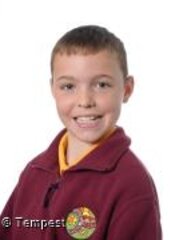
The Rt Hon. O.K
Constituency: Kirkgate North

The Rt Hon. A.F-M
Constituency: Kirkgate South

The Rt Hon. O.M
Constituency: Castlegate North

The Rt Hon. L.M
Constituency: Castlegate South

The Rt Hon. E.W
Constituency: St. Helen's North
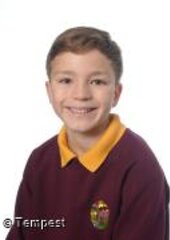
The Rt Hon. A.H-O
Constituency: St. Helen's South
.jpg)
The Rt Hon. C.T
Constituency: Cocker North
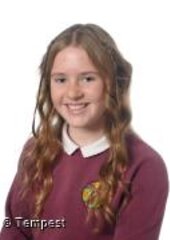
The Rt Hon. R.B
Constituency: Cocker South

The Rt Hon. B.W
Constituency: Derwent North
